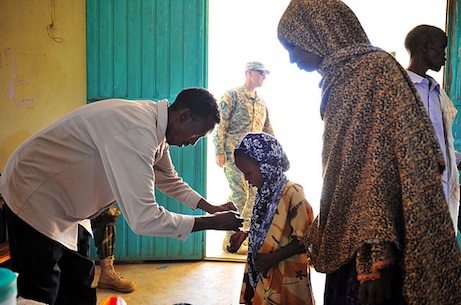
New research which moves scientists one step closer to finding a vaccine for a parasitic worm that infects more than 200 million people worldwide has been published.
New research which moves scientists one step closer to finding a vaccine for a parasitic worm that infects more than 200 million people worldwide has been published.
The research, led by Gates Cambridge Alumnus Sukrit Silas, is in the International Journal for Parasitology.
Infection by the parasitic worm Schistosoma mansoni occurs in 54 countries around the world and is a serious health problem in sub-Saharan Africa. Symptoms can include fever, a rash, aching, a cough, diarrheoa and gland enlargement. For those living where the parasite is endemic, repeated exposure can lead to life-long infection, although partial immunity does eventually develop. Infection by the worm is second only to malaria in its global impact on human populations. Over the past two decades, it has been argued that a particular kind of antibody response in chronic patients of schistosomiasis – known as Immunoglobulin E (IgE) – might serve to protect people from reinfection by the parasite.
It has also become clear that IgE-mediated immune responses play a central role in allergies, leading some scientists to propose that allergies might simply be misguided anti-parasite responses. This means for example, that people with allergies to shellfish might develop rashes and inflammation upon exposure to shrimp because their immune system “thinks” it is under parasitic attack and mounts an aggressive defence.
Sukrit [2011], whose work is based on his MPhil in Pathology, which was supported by a Gates Cambridge Scholarship, says: “In this research, we turned this idea on its head, and argued that in order to find “signatures” of the parasite that might be easy for the human immune system to recognise, our best bet would be to look for worm proteins that “look like” already known allergens. Such protein signatures could then be purified and used to immunise people who live in endemic regions against schistosomiasis. We first purified and characterised several different variants of S. mansoni tropomyosin – a predominantly muscle-related protein that is present in all animals and is the major food allergen in shellfish. We then tested whether blood serum from chronically infected patients in Musoli – a fishing village in Uganda – contained antibodies against these purified tropomyosins, and whether these immune responses were correlated with resistance to reinfection. Indeed, we found that IgE responses to one tropomyosin variant in S. mansoni were significantly correlated with immunity.”
Sukrit is currently at Stanford University where he is doing a PhD in Chemical and Systems Biology.
*Picture credit: Wiki Commons and US Army Africa. It depicts the Medical Civic Action Programme in Shinile Woreda, Ethiopia, 2010.












